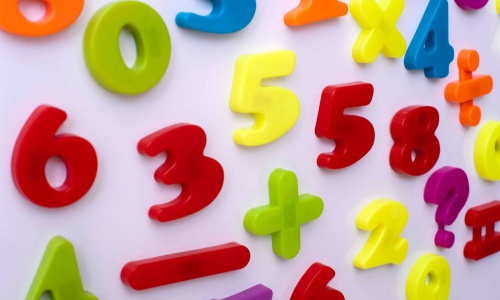Practical Maths Ideas for at Home

Here are some ideas from White Rose Maths of some nice practical maths ideas for at home...
We’re already providing Home Learning materials here which match what children would be learning at school and are easy to use – just watch the video, do the worksheet and check your answers! If you get stuck, don’t worry, you can get help by emailing us at mathshelp@whiterosemaths.com
In addition to this more formal learning, here’s some fun ideas that will bring lots of mathematical opportunities for #MathsEveryoneCanAtHome.
1. Estimation jars.
Take a clear jar or box and fill it with lots of different items e.g. toy cars, sweets, coins, dried pasta, wax crayons, cereal, anything you have around the house that can fit in a jar!
 Children can then estimate how many items they think are in the jar or they can fill them and challenge parents to guess how many. Once an estimation has been made, count out the objects. Group objects in tens to help children keep track of how many objects there are altogether.
Children can then estimate how many items they think are in the jar or they can fill them and challenge parents to guess how many. Once an estimation has been made, count out the objects. Group objects in tens to help children keep track of how many objects there are altogether.
2. Card games.
All the games suggested here will use four lots of digit cards from 1-9. If you have a pack of playing cards, you can use the numbered cards from there. If you don’t, they can easily be made, consider cutting up a leftover cereal box or other cardboard/paper to make the cards.
Number bonds match (suitable for KS1 children)
For this game, use 2 sets of the 1 – 9 digit cards plus two extra 5s.
1. Lay the cards out on a flat surface, face down so you can’t see the digits.
2. Take turns to turn over 2 cards at a time, if you get a number bond to 10 (numbers that add to 10), you keep the cards.
3. Once all the cards have been turned over, whoever has the most pairs, wins!
Times table blast (suitable for KS2 children)
For this game use four sets of 1 – 9 digit cards.
1. Deal five cards to each player and place the rest in a pile in the middle of the players.
2. On their turn, one player will place one of their cards down in front of them and turn one over from the pile.
3. The player must then multiply the numbers together and say the product. If they are right, they keep both cards. If they are wrong, other players can buzz in by saying their name and then the correct answer. If they are correct, they get to keep the cards.
4. The aim of the game is to be the last player to have cards left.
This game can also be played by adding the numbers together instead of multiplying.
There are plenty more games that you can play as well. Encourage children to make up their own games with the cards and create their own rules. Children can link them to existing games such as Go Fish or Snap, but think about looking for number bonds instead of making sets or runs.
3. Cooking and baking.

Make the most of everyday opportunities by encouraging children to get involved in cooking and baking where possible. Weighing out ingredients gives opportunities to read numbers and think about real-life measures. If the recipe is for 12 cupcakes, but you want to make more or fewer, encourage children to think about what we need to multiply or divide by to find the new quantities that are needed.
4. Treasure hunt.
Make the most of being in the house by creating a treasure hunt. Ask children to think about a route around the house and create directions from room to room. They could have mathematical questions hidden in each room to complete before moving on to the next clue. Challenge children to create the treasure hunt themselves before completing it together.
5. Minute madness.
How many star jumps can you do in a minute? How many times can you write your name in a minute? How many socks can you get into a washing basket in a minute? Just three possible challenges you could set using a countdown timer. Take a look at the ‘Minute to win it’ games online for even more challenges you have to try and do within a minute. These are a brilliant way to break up a day and think about how long a minute really is!

With these 5 tips, hopefully home learning can become more active and fun as well as part of your daily routine. The most important thing is that children continue to enjoy Maths and see it as something that can bring everyone together whether it be in a game or a baking marathon
